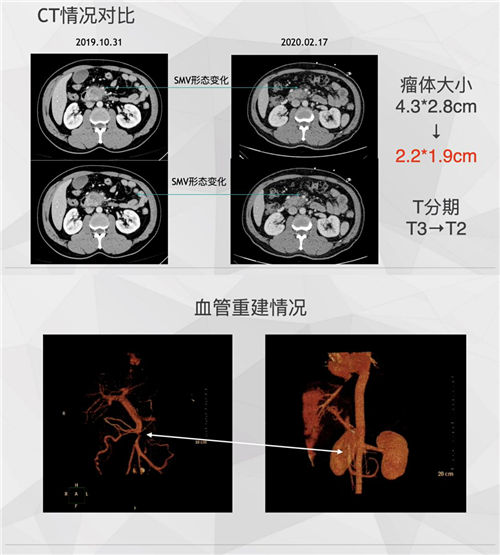Recently, Prof. Peng Bing’s team of West China Hospital, Sichuan University successfully carried out the first laparoscopic pancreaticoduodenectomy with superior mesenteric vein resection and artificial vascular reconstruction for a patient with pancreatic head cancer after neoadjuvant chemotherapy in the world. The patient recovered smoothly after surgery.

Pancreatic cancer is one of the most malignant diseases. Despite developments in detection and management of pancreatic cancer, only about 7.2% of patients will live 5 years after diagnosis, surgical resection at present offers the only chance of cure. Unfortunately, most patients present with advanced unresectable diseases. Furthermore, pancreatic cancer responds poorly to most chemotherapeutic agents. Faced with such situation, the urgent problem to be solved is to improve the curative effect by standardizing multidisciplinary treatment (MDT)which could combine the existing diagnosis and treatment methods and formulate Individualized treatment.

At the end of year 2018, Prof. Peng Bing’s team started MDT which including neoadjuvant chemotherapy, radical surgical resection and postoperative adjuvant chemotherapy for pancreatic cancer. MDT centers on the department of Surgery, with the participation of many other departments, including the departments such as Oncology, Radiology, Pathology, Gastroenterology and Integrated TCM & Western Medicine and so on. MDT could take the advantages of various departments to solve the problems in diagnosis and treatment. At the first diagnosis of a patient in the department of minimally invasive surgery of HPB, the attending doctor will make relevant examinations for a clear diagnosis. Then, the surgeon will guide patients to undergo surgery or neoadjuvant chemotherapy. In case of difficult cases, the surgeon will contact relevant departments for consultation so as to minimize the patient's medical treatment process.
Neoadjuvant chemotherapy makes it possible to perform radical surgery for patients with borderline resectable and locally advanced pancreatic cancer, which improving the R0 resection rate. Also, chemotherapy will prolong the survival time and improve the life quality of the patients with advanced pancreatic cancers. Minimally invasive surgery enables patients after neoadjuvant chemotherapy to get a faster recovery, so as to enter postoperative chemotherapy earlier and reduce the waiting period after surgery. As a result, it can further improve prognosis and prolong patients’ survival time.